In recent years, international human rights and religious reports from some Western countries have often contained distorted and slanderous content, accusing “the Vietnamese government of restricting religious freedom” (?!). These slanderous allegations and lack of objective assessments have more or less caused a part of the public at home and abroad to misunderstand Vietnam’s policy of respecting freedom of belief and religion, creating “pretexts” for hostile organizations and individuals to exploit to oppose the policies and guidelines of our Party and State, causing political insecurity, social order and safety. Hostile forces and opponents both inside and outside the country, especially extremists in some religions, use many means, methods and tricks, such as: using the internet, taking advantage of conferences, seminars, international forums, integrating them into religious activities... to on the one hand vigorously praise "religious freedom" in Western countries, on the other hand blatantly accuse Vietnam of "violating religious freedom, democracy, human rights" (?!), demanding "religious activities do not need State management" (?!)... The above arguments are completely foreign to the reality of diverse and rich religious life, and religious freedom is respected and protected in Vietnam. We have sufficient scientific, legal and practical basis to refute these distorted arguments.
Firstly, in terms of scientific epistemology, “religion is a form of social consciousness formed through faith, worship of God and holy saints that is relatively organized, has symbolic locations, holidays, scriptures, rituals and a specialized religious dignitary class” (1). The Law on Belief and Religion stipulates: “Religion is a human belief that exists with a system of concepts and activities including objects of worship, doctrines, canon laws, rituals and organizations” (2). Thus, in addition to issues related to belief (belief, worship of supernatural forces), religion is also a social entity, a material organization of a community; religion belongs to the category of practical activities. Therefore, religious activities in any country must be subject to the management of that country.
Accordingly, when a religious organization has not been recognized by a state agency, it means that it does not have legal status. When it has legal status, a religious organization must comply with legal regulations and be responsible before the law for its activities. On the other hand, religious activities are not only aimed at meeting the spiritual needs of a group of dignitaries and followers, but are also related to all areas of social life. For example, the construction of a place of worship is not simply to consolidate and develop the material facilities of the church, but is also related to state regulations on land, planning, and construction; printing of scriptures, production of religious utensils related to regulations on culture and publishing; internal and external religious relations related to policies and laws in the fields of foreign affairs, exit and entry; training activities of dignitaries related to laws on education; Religious volunteer activities related to the implementation of social security policies... Therefore, religion and religious activities in our country must also comply with the law, like any other country. We cannot take advantage of the issue of "human rights" to stand above national sovereignty . All citizens, including dignitaries, monks and nuns, and religious followers must have the responsibility and obligation to build and protect the Fatherland, as stipulated in the Constitution and laws.
Second, in terms of legal basis, international law and that of many countries in the world stipulate that freedom of belief and religion is a fundamental right of citizens, but is still subject to state regulation. Article 18 of the International Covenant on Civil and Political Rights ratified by the United Nations on December 16, 1966, clearly states: “Everyone has the right to freedom of thought, conscience and religion”, and also affirms: “The right to freedom of expression of religion or belief may be limited only when such limitation is prescribed by law and is necessary to protect public security, order, health or morals, or to protect the fundamental rights and freedoms of others” (3)… Thus, true freedom is to do what is necessary, that is, what is prescribed by law.
In our country, immediately after the Democratic Republic of Vietnam was born, our Party and State paid attention to implementing the policy of freedom of belief and religion and state management of religion, demonstrated through the promulgation of many legal documents regulating social relations related to religion and religious activities. With the declaration: "Vietnamese citizens have the right to freedom of belief", Article 10 of the 1946 Constitution created a legal basis for implementing the policy on religion nationwide. The 1959 Constitution, Article 26 stipulates more clearly: "Citizens of the Democratic Republic of Vietnam have the right to freedom of belief, to follow or not to follow any religion". Inheriting the 1959 Constitution, the 1980 and 1992 Constitutions both stipulate: “Citizens have the right to freedom of belief and religion, to follow or not to follow any religion. All religions are equal before the law. Places of worship of beliefs and religions are protected by law. No one is allowed to take advantage of religion to violate the law and policies of the State”. The 2013 Constitution, Article 24 continues to clearly affirm: “Everyone has the right to freedom of belief and religion, to follow or not to follow any religion. All religions are equal before the law. The State respects and protects the right to freedom of belief and religion. No one is allowed to violate the freedom of belief and religion or take advantage of belief and religion to violate the law”.
The basic principles for religion in the Constitution were institutionalized by the State into legal documents, such as: On June 14, 1955, President Ho Chi Minh signed and issued Decree 234/SL, on policies on religion; on November 11, 1977, the Government issued Resolution No. 297/NQ-CP, on a number of religious policies; on March 20, 1991, the Council of Ministers (now the Government) issued Decree No. 69/ND-HDBT, on religious activities; on April 19, 1999, the Government issued Decree No. 26/1999/ND-CP, on religious activities.

Children playing in So Kien village in Kien Khe town, Thanh Liem district, Ha Nam province_Photo: Document
In particular, Resolution 25/NQ-TW, dated March 12, 2003, of the 7th Central Conference, Session IX, on religious work, affirmed: “Belief and religion are the spiritual needs of a part of the people, which are and will exist with the nation in the process of building socialism in our country; religious people are part of the great national unity bloc” (4). Based on the resolution, the Standing Committee of the 11th National Assembly issued the Ordinance on Belief and Religion; the Government issued Decree No. 22/2005/ND-CP, guiding the implementation of a number of articles of the Ordinance on Belief and Religion; Decree 92/2012/ND-CP, detailing and providing measures for the implementation of the Ordinance on Belief and Religion.
On November 18, 2016, the 14th National Assembly promulgated the Law on Belief and Religion; on December 30, 2017, the Government issued Decree No. 162/2017/ND-CP, detailing a number of articles and measures to implement the Law on Belief and Religion. Accordingly, currently, the Vietnamese State clearly defines the rights and responsibilities of organizations and individuals in religious activities, such as: Regulations on registration of collective religious activities, registration of religious activities (Articles 16 to 20, Law on Belief and Religion); regulations on religious organizations (Articles 21 to 31); regulations on ordination, appointment, election, nomination and transfer, dismissal, removal of dignitaries, officials, and monks (Articles 32 to 36); regulations on religious training facilities, religious training classes (Articles 37 to 42); regulations on regular religious activities (Articles 43-46); regulations on religious activities involving foreign elements (Articles 47 to 53); regulations on activities in the fields of publishing and social charity of religious organizations (Articles 54 to 55)(5). All acts of discrimination and prejudice for reasons of belief and religion; activities that take advantage of freedom of belief and religion to go against the interests of the Fatherland and the nation, harm security and order, and profiteering are strictly prohibited. Laws on religious activities have become an important part of the legal system of the Socialist Republic of Vietnam.
In addition to the regulations of states and international organizations on religion, the doctrines and canons of many religions also clearly state the role of the state and the law towards the community and affirm the responsibility of each believer to comply with the law as a citizen. From the above viewpoints, policies and systems of legal documents, it can be affirmed that the right to freedom of belief and religion in Vietnam is recognized, respected and protected by the Party and the State. State management of religious activities is to protect and ensure the legal development of religions in accordance with the national and ethnic interests. The right to freedom of belief and religion is not only affirmed by the Party and the State of Vietnam, recognized by law and implemented in practice, but is also compatible and consistent with the right to freedom of belief and religion according to international law and practice.
Third, in practice, the correct religious policies of the Party and State have fundamentally changed religious life in Vietnam. In recent years, religions in our country have grown rapidly in terms of the number of followers and places of worship, expanding relations with many religious organizations, individuals, and fellow believers abroad; all religious activities of the people are respected and facilitated by the government; the material and spiritual life of religious people is increasingly improved.
In fact, religions have the conditions to develop remarkably. If in 2003, the whole country had 15 organizations belonging to 6 religions, 17 million followers, with about 20,000 places of worship, 34,000 dignitaries, 78,000 officials; then by 2021, the State had recognized 43 organizations belonging to 16 different religions, with over 26 million followers, 54,000 dignitaries, 135,000 officials, 29,000 places of worship (6). Religious training facilities compared to 1990 have increased 3 times, up to more than 60 facilities, with 17 universities. Previously, the printing and publishing of religious scriptures of religions was limited, but up to now, about 4,000 books have been published with tens of millions of copies; There are 15 newspapers and magazines of religious organizations operating, printed in different languages, such as English, French, ethnic minority languages, etc. In 2009, the State allowed and supported the Vietnam Buddhist Sangha to organize the 11th World Buddhist Women's Conference in Ho Chi Minh City, with more than 2,000 nuns from more than 47 countries and territories around the world attending this event. In 2011, the Vietnam Evangelical Church (North) and the Vietnam Evangelical Church (South) jointly organized the celebration of the 100th anniversary of Protestantism in Vietnam, the ceremony was held in Da Nang and attracted about 20,000 attendees. In 2012, at Xuan Loc Bishop's House, Dong Nai province, the 10th Plenary Assembly of the Federation of Asian Bishops' Conferences opened, with more than 200 bishops from around the world attending. In 2017, on the occasion of the 500th anniversary of the Protestant Reformation, an event took place in Hanoi with more than 20,000 participants. In May 2019, the Buddhist Sangha successfully organized the 2019 United Nations Vesak Festival at Tam Chuc Pagoda, Ha Nam Province with the participation of more than 3,000 official delegates (including 570 international delegations with 1,650 delegates from 112 countries and territories)... The above figures are vivid evidence showing that the situation of religious freedom in Vietnam, the right to freedom of belief and religion in Vietnam is protected by law and is always guaranteed and implemented in practice, religions have favorable conditions to operate and are increasingly developing. Religious activities take place vibrantly in all regions, areas, communities, and social classes, especially at the beginning of the year and during traditional festivals. Religions live together in harmony, solidarity, and solidarity with the nation. Religious dignitaries, officials, monks, and followers actively participate in social and charitable movements to eradicate hunger and reduce poverty, making practical contributions to the country's development. The religious community in our country is constantly being consolidated and developed in the great national unity bloc, increasingly affirming its role in the cause of building and defending the Fatherland.
Thus, the above scientific, legal and practical bases in themselves contribute to breaking down distorted, incorrect and hostile arguments about religious freedom in Vietnam. In the coming time, the authorities, the core of which is the state management agency on religion at all levels, need to be more active and proactive in information, propaganda and guidance work so that religious organizations and individuals at home and abroad understand and properly implement the religious policies and guidelines of our Party and State; promptly detect, combat and expose the plots and tricks of hostile forces that take advantage of the guise of "religious freedom", "democracy", "human rights"... to sabotage the Party and State of Vietnam, divide the great national unity bloc, thereby contributing to positively orienting public opinion and eliminating subjective views on the religious situation in Vietnam./.
Associate Professor, Dr. Van Duc Giao
Lieutenant Colonel, People's Security University
————————–
(1) Nguyen Nhu Y, Great Vietnamese Dictionary, Ho Chi Minh City National University Publishing House, 2008, p. 1611
(2), (5) See National Assembly of the Socialist Republic of Vietnam, Law on Belief and Religion, 2016
(3) See the Ho Chi Minh City Law Dissemination Website, http://tuyentruyenphapluat.tphcm.gov.vn
(4) See Resolution No. 25/NQ-TW, dated March 12, 2003, of the Party Central Committee, On religious work
(6) Government Committee for Religious Affairs, Religion and religious policy in Vietnam, Religion Publishing House, Hanoi, 2022. pp. 90-91
Source



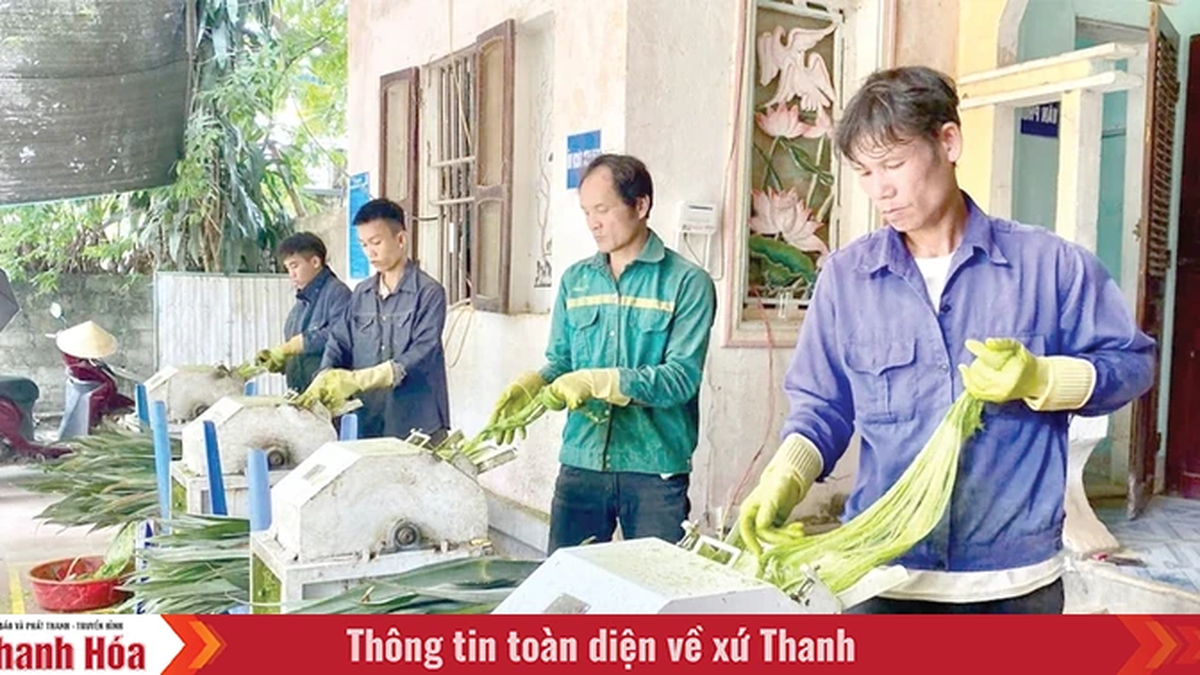
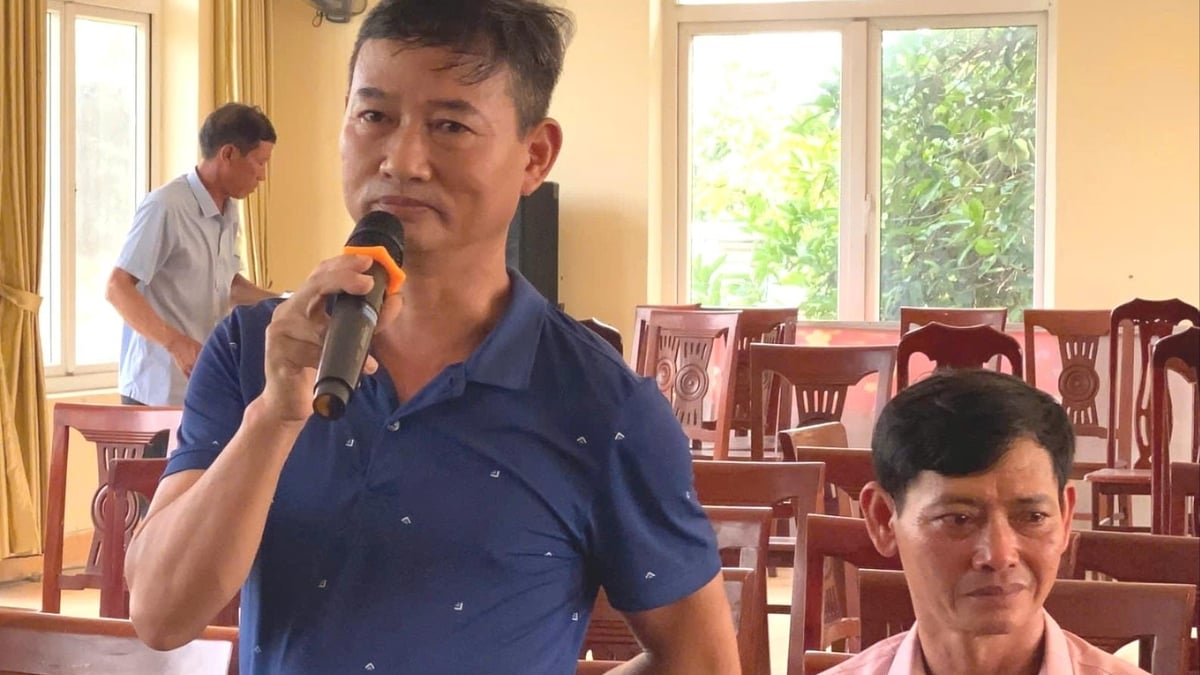
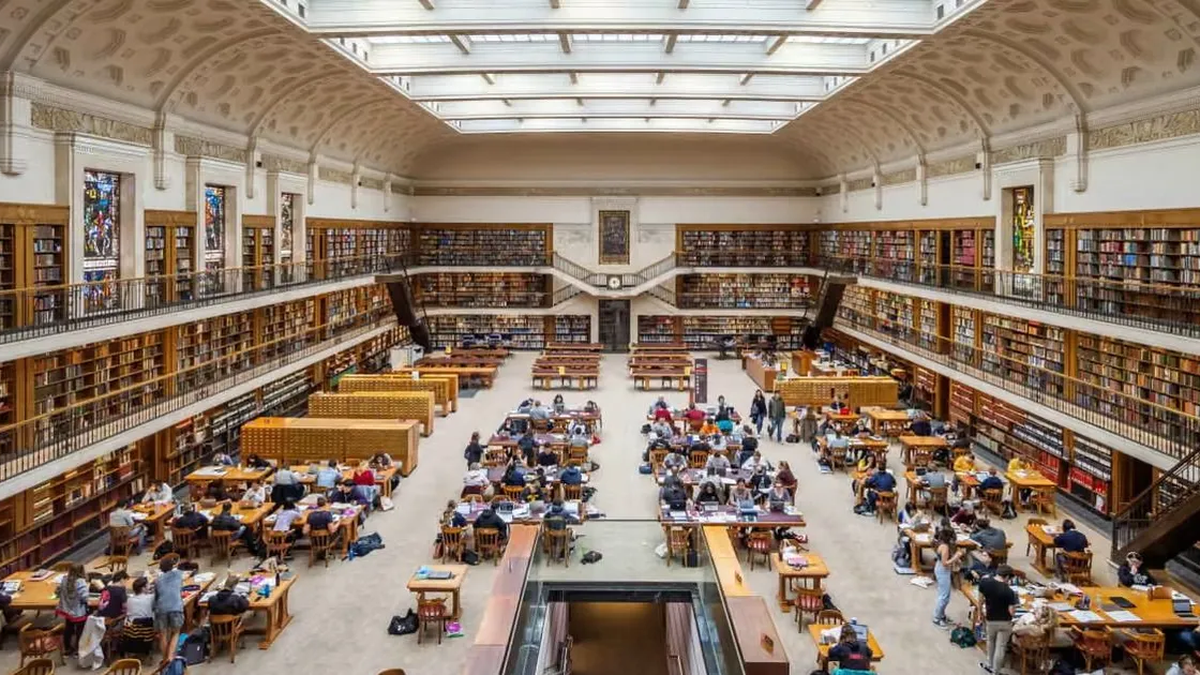


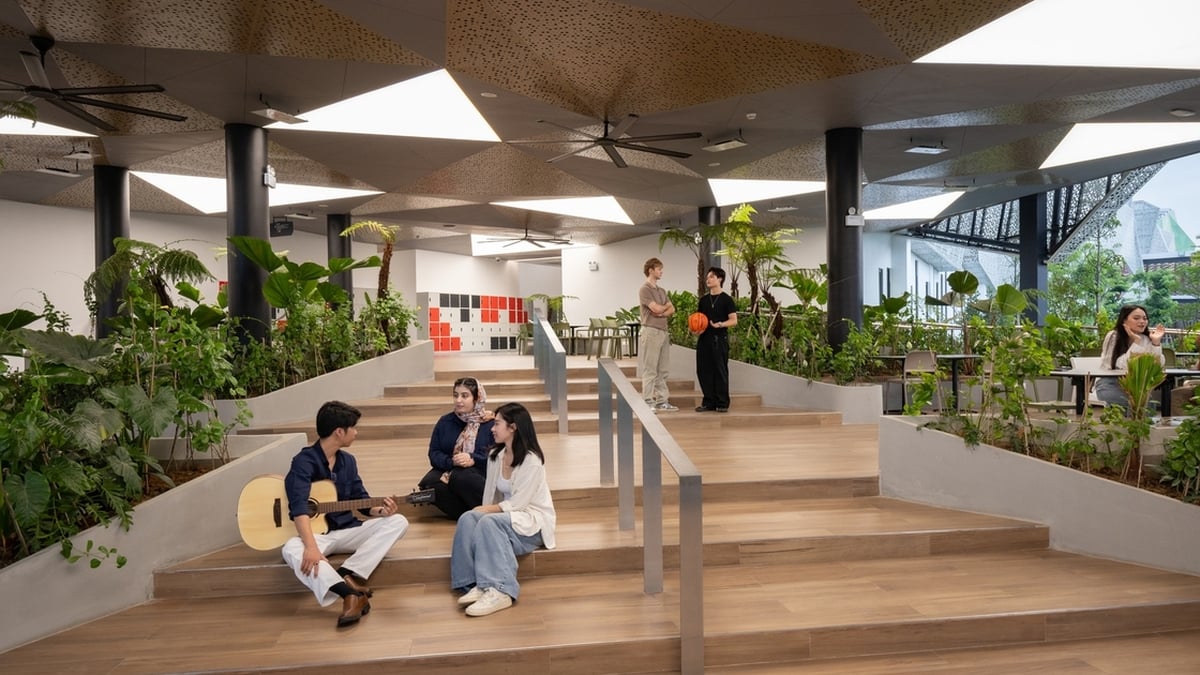

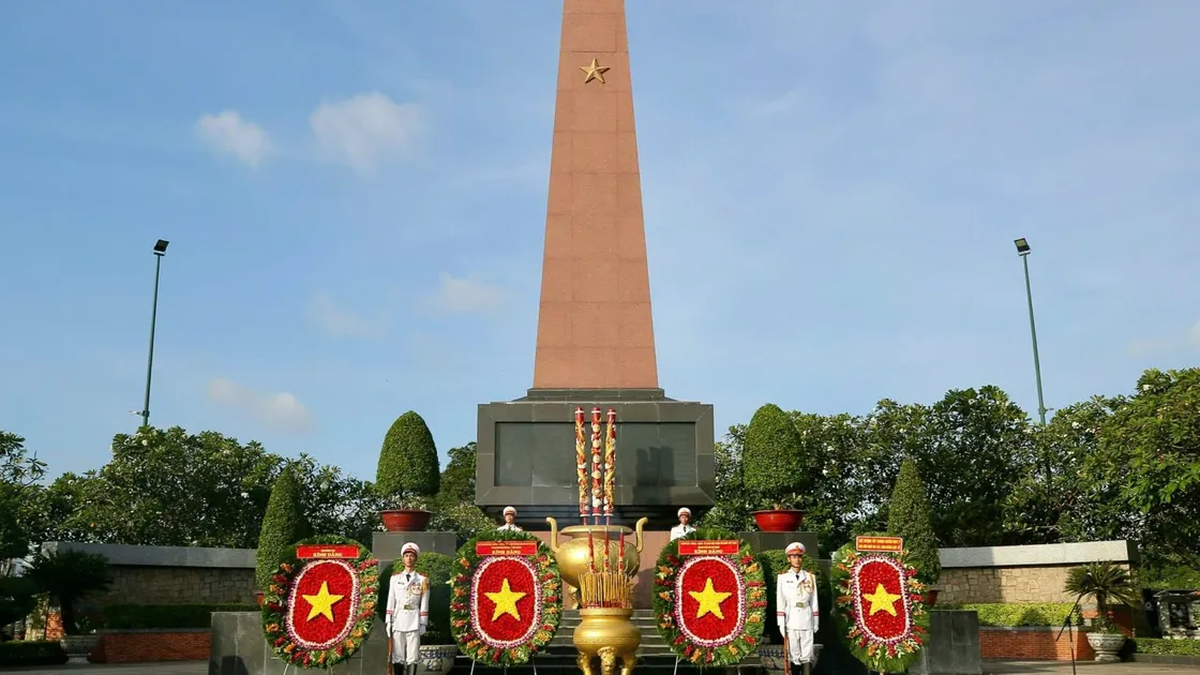























































































Comment (0)